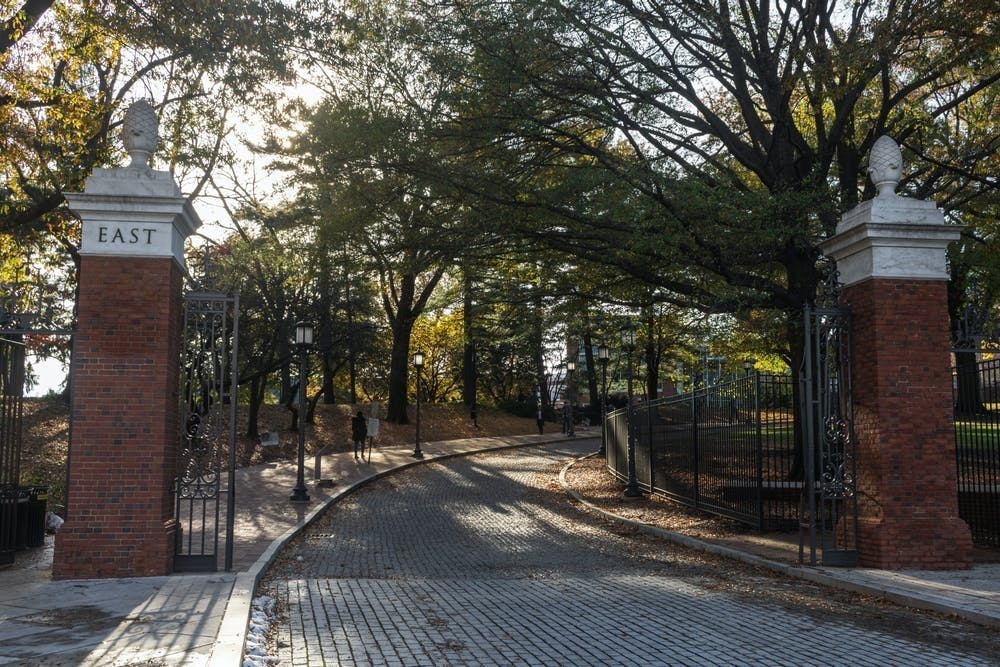Following the University’s announcement on August 6 that all undergraduate fall classes will be held online, many students once again have had to modify their plans. With flights booked in advances and leases already signed, students who had decided to Baltimore are scrambling to make adjustments.
Rising sophomore Melody Lei, the historian of the I’m First student organization, understands that the University’s decision to move everything virtually was necessary for the well-being of the community. However in an email to The News-Letter, she expressed that she feels the University is not offering enough help for First-Generation, Limited-Income (FLI) students and should have released its plans earlier.
“I wish the school was more detailed about the implications of the new plans on FLI students and mitigation for them,” Lei wrote. “There are a lot of questions we would like answers for and, hopefully, we won’t have to go after individual departments to get them.”
Rising junior Carol Lu, a FLI student, was originally supposed to be a Resident Advisor (RA) this school year. Along with free housing, RAs receive food and additional allowances.
Lu stated in an email to The News-Letter that she was relying on her RA position to be her main source of income for the year but is no longer eligible to receive these benefits. Living in Hawaii, Lu must now decide whether she should return to Baltimore, since the six-hour time difference will pose an academic challenge for her.
“I do not think the University is offering enough to help FLI students. There’s no guarantee, which is the scariest part,” Lu wrote. “It drives anxiety up through the roof with uncertainty sort of hanging over our heads and makes us wonder if Hopkins really wants us to succeed here.”
Hanna Jackson, director of special projects for FLI initiatives at the Center for Student Success (CSS), shared in an email to The News-Letter that the CSS has partnered with Financial Aid to provide timely disbursement of funds and individualized support for FLI students as they navigate the financial aid process. The office also sent a survey to FLI students to understand and respond to their needs and interests.
“The pandemic has impacted our FLI student community on multiple levels, and we have sought to provide a multi-pronged approach to supporting them in fully engaging in their education remotely,” Jackson wrote.
Jackson highlighted that the University will be granting FLI students early registration for PILOT and has expanded its personalized peer tutoring program and individualized study-skills peer consulting to support FLI students.
Rising junior Yoko Yamashita, an international student from Japan, was supposed to be employed with the Learning Den and the PILOT program as well as a teaching assistant next semester. Because she will be remaining in Japan for the fall, PILOT has informed her that she will not be compensated, she wrote in an email to The News-Letter.
According to the fall reopening guidelines, the University will not be able to employ students who are not physically in the United States.
“I’m very disappointed about this because I was recently hired for two positions that I had to undergo a rigorous selection process for,” Yamashita wrote. “I’m just hoping that they can at least reserve my position until whenever I can go back to the U.S.”
During a town hall for fall undergraduate planning on August 11, Vice Provost and Chief Risk and Compliance Officer Jon Links explained that the issue is not within the University’s discretion.
“It’s actually not Hopkins policy or U.S. law that is tying our hands in terms of employment abroad,” he said. “It is the complex set of regulations and laws around both employment and corporate setup doing business in other countries that is tying our hands right now.”
Rising sophomore Sarah Jung, a domestic student residing in Korea, felt that the University’s final plans were released in a timely manner. She acknowledged that it made sense to release plans closer to the beginning of the semester given the fluidity of the pandemic.
However, Jung added in an email to The News-Letter that the University did not give enough time for students to make decisions about fall housing.
”Some of my friends are currently conflicted with leases that they signed due to the quickly decreasing amount of apartments available,” Jung wrote.
Rida Chowdhury, an incoming freshman from Saudi Arabia, anticipates challenges making friends and connecting to people virtually.
“There should be more resources directed to us, especially about what life is like as an international student at JHU and information on places we can seek help with finding our communities and getting access to jobs, internships and research opportunities,” Chowdhury wrote.
In an email to The News-Letter, Dacia Gauer, the director of the Office of International Service (OIS), shared that the office will email international students to inform them of immigration-related news.
In addition, he encourages international students to visit the office’s website for more information.
“Student Financial Services is working with students who have financial need due to COVID-19. The Life Design Lab is planning a robust assortment of virtual resources for students for fall,“ Gauer wrote. “Once fall semester begins, OIS will resume our bi-weekly newsletter for international students and scholars which includes updates as we learn of them.”
Yamashita expressed her frustration with the University at the delayed announcement of its fall plans. She originally planned to return to campus and had to cancel her plane ticket at the last minute.
Since leaving campus in March, she has been paying rent and utilities for her empty apartment, which she will not be able to sublet, as she left her belongings there.
“If they were not ready to release a final decision by mid-July, they should have followed up with students in mid-July letting us know that they still needed more time,” Yamashita wrote. “The lack of transparency created so much unnecessary uncertainty and stress that could have been avoided.”





